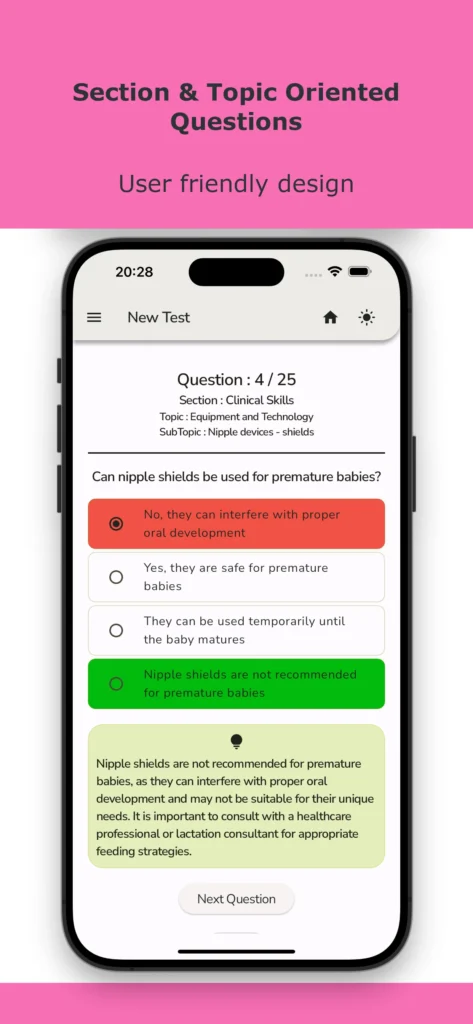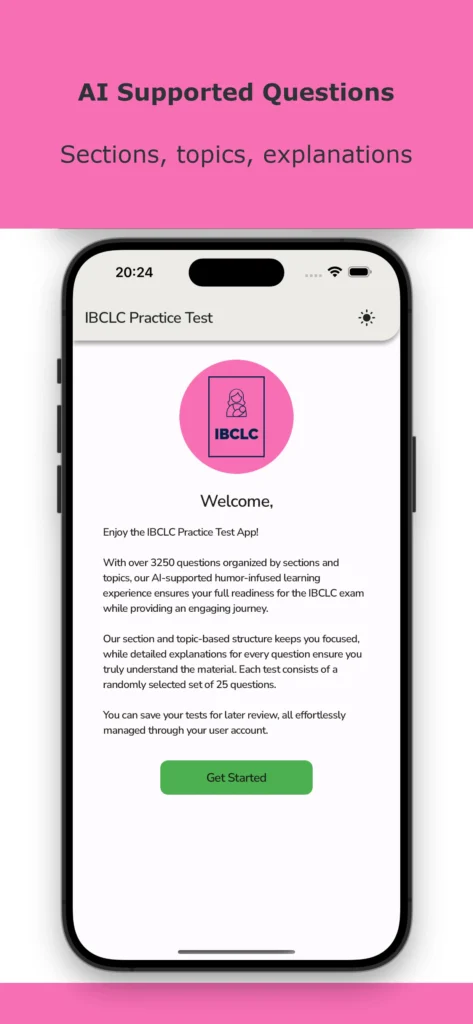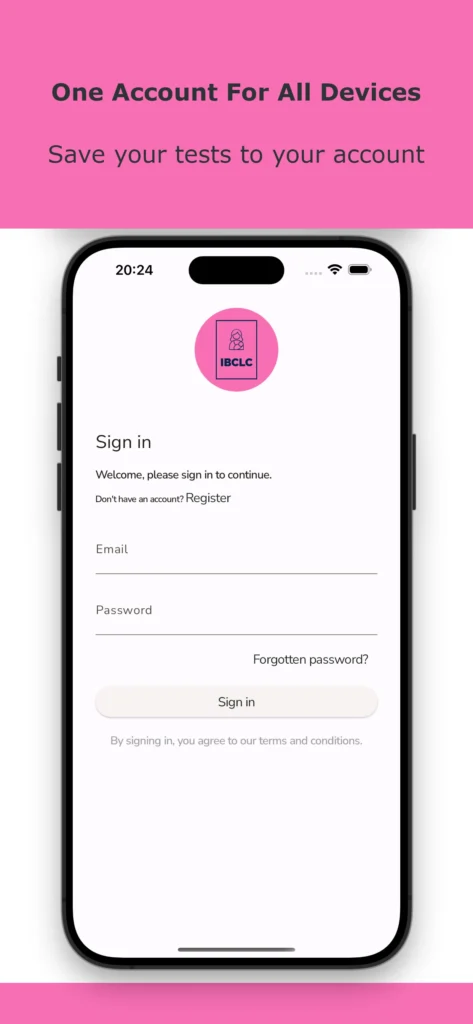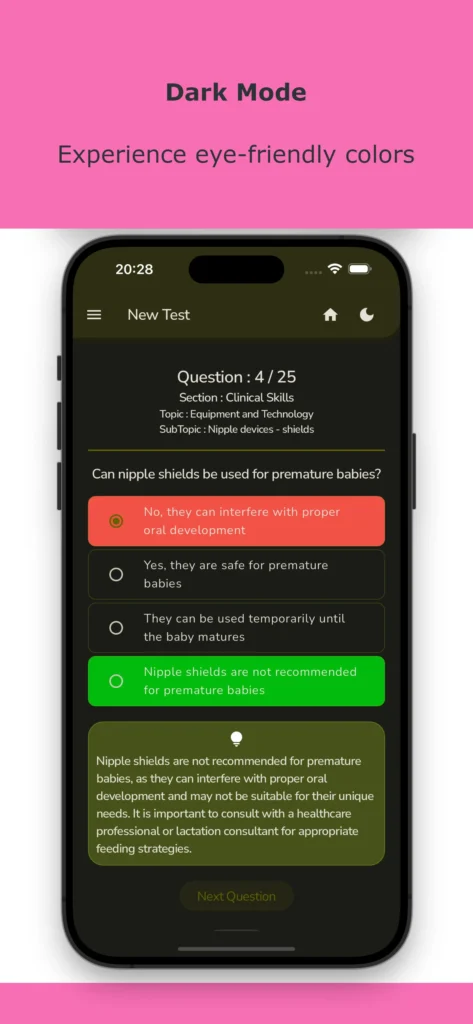Introduction to IBCLC
What is an IBCLC?
If you’re passionate about helping mothers and babies with breastfeeding, you may have come across the term IBCLC. But what exactly does it mean? IBCLC stands for International Board Certified Lactation Consultant. An IBCLC is a healthcare professional who specializes in providing expert lactation support and guidance to breastfeeding families.
IBCLCs are highly trained and have extensive knowledge in lactation and breastfeeding management. They play a crucial role in assisting mothers and babies to establish and maintain successful breastfeeding relationships.
Unlike other lactation professionals, such as lactation counselors or breastfeeding peer counselors, IBCLCs have undergone rigorous training and have met the international standards set by the International Board of Lactation Consultant Examiners (IBLCE). This certification ensures that IBCLCs possess the necessary skills and knowledge to provide evidence-based care.
How to Become an IBCLC
If you’re interested in becoming an IBCLC, you’re probably wondering about the steps involved. Here’s a step-by-step guide to help you on your journey:
- Earn a minimum of a high school diploma or equivalent.
- Complete the required lactation-specific education. This typically involves completing a minimum of 90 hours of lactation education, covering topics such as anatomy and physiology of lactation, infant development, and breastfeeding management.
- Gain clinical experience. To become an IBCLC, you must accumulate a minimum of 1,000 hours of supervised clinical experience in lactation consulting. This hands-on experience allows you to apply the knowledge you’ve gained and develop your skills in supporting breastfeeding families.
- Obtain the necessary health sciences education. This involves completing college-level courses in health sciences, such as biology, nutrition, and psychology. These courses provide a solid foundation of knowledge that is essential for understanding the complexities of lactation and breastfeeding.
- Complete the IBLCE exam. Once you’ve met the education and clinical experience requirements, you can apply to take the IBLCE exam. This comprehensive exam assesses your knowledge and skills in lactation consulting. Passing the exam is a crucial step towards becoming an IBCLC.
- Maintain your certification. To maintain your IBCLC certification, you must fulfill continuing education requirements and recertify every five years. This ensures that IBCLCs stay up-to-date with the latest research and best practices in lactation support.
The Difference Between a Lactation Consultant and an IBCLC
You may be wondering what sets an IBCLC apart from other lactation professionals, such as lactation consultants. While both provide support and guidance to breastfeeding families, IBCLCs have undergone extensive training and have met the international standards set by the IBLCE. This certification ensures that IBCLCs possess a high level of expertise and can provide evidence-based care.
How Much Does an IBCLC Make?
The salary of an IBCLC can vary depending on factors such as location, experience, and work setting. According to the International Lactation Consultant Association (ILCA), the average annual salary for an IBCLC in the United States is around $70,000. However, it’s important to note that salaries can range from around $40,000 to over $100,000.
How to Find an IBCLC
If you’re in need of lactation support, finding an IBCLC is a great option. IBCLCs can provide expert guidance and help you overcome any breastfeeding challenges you may be facing. To find an IBCLC near you, you can use the ‘Find a Lactation Consultant’ directory on the IBLCE website or consult with your healthcare provider for recommendations.
Conclusion
Becoming an IBCLC is a rewarding and fulfilling career path for those passionate about supporting breastfeeding families. By completing the necessary education, gaining clinical experience, and passing the IBLCE exam, you can join the ranks of highly trained professionals who make a positive impact on the lives of mothers and babies.
Requirements for IBCLC Certification
What is an IBCLC?
An IBCLC, or International Board Certified Lactation Consultant, is a healthcare professional who specializes in providing expert lactation support and guidance to breastfeeding families. They play a crucial role in helping mothers establish and maintain successful breastfeeding relationships with their infants.
IBCLCs are highly trained and knowledgeable in the field of lactation and breastfeeding. They work in various settings such as hospitals, clinics, private practices, and community organizations, providing individualized care and support to families.
How to Become an IBCLC
Becoming an IBCLC requires a combination of education, clinical experience, and passing a comprehensive examination. Here are the steps to follow:
- Earn a minimum of 90 hours of lactation-specific education. This education should cover various topics such as anatomy and physiology of lactation, infant development, breastfeeding management, and counseling skills.
- Gain clinical experience by providing lactation support to breastfeeding families. You must complete a minimum of 300 hours of supervised clinical practice, which includes direct client contact and observation.
- Complete at least 1,000 hours of lactation-specific clinical practice. This can be done in a variety of settings, including hospitals, clinics, and private practices.
- Obtain a current healthcare provider CPR certification.
- Submit an application to the International Board of Lactation Consultant Examiners (IBLCE) and pay the required fees.
- Pass the IBCLC examination, which consists of multiple-choice questions and clinical case studies. The exam assesses your knowledge and skills in lactation management, counseling, and professional practice.
Additional Requirements
In addition to the above steps, there are a few additional requirements to become an IBCLC:
- You must have a minimum of a high school diploma or equivalent.
- You must adhere to the IBCLC Code of Professional Conduct and the IBLCE Scope of Practice.
- You must maintain continuing education requirements to keep your certification current.
Benefits of Becoming an IBCLC
Becoming an IBCLC offers numerous benefits, including:
- The ability to make a positive impact on the lives of breastfeeding families.
- Opportunities to work in various healthcare settings and make a difference in your community.
- A rewarding and fulfilling career that allows you to support and empower mothers and infants.
- Potential for career advancement and specialization within the field of lactation.
Conclusion
Becoming an IBCLC is a rewarding and fulfilling journey that requires dedication, education, and clinical experience. By following the steps outlined above, you can embark on a career that allows you to support and empower breastfeeding families, making a positive impact on their lives.
Pathways to Becoming an IBCLC
What is an IBCLC?
An International Board Certified Lactation Consultant (IBCLC) is a healthcare professional who specializes in providing expert lactation support and guidance to breastfeeding families. IBCLCs are highly trained and knowledgeable in the field of lactation and play a crucial role in promoting and supporting breastfeeding.
How to Become an IBCLC
If you are passionate about breastfeeding and want to pursue a career as an IBCLC, there are several pathways you can take to achieve this goal. Here are the steps to becoming an IBCLC:
- Earn a minimum of a high school diploma or equivalent.
- Complete the required lactation-specific education.
- Gain clinical experience in lactation.
- Meet the health sciences education requirements.
- Complete the required lactation-specific clinical practice.
- Pass the IBCLC exam.
Step 1: Earn a Minimum of a High School Diploma or Equivalent
The first step towards becoming an IBCLC is to have a minimum of a high school diploma or equivalent. This is the basic educational requirement to pursue a career in lactation consulting.
Step 2: Complete the Required Lactation-Specific Education
After completing high school, you will need to complete the required lactation-specific education. This education can be obtained through various pathways, including:
- Attending a lactation consultant training program accredited by the International Board of Lactation Consultant Examiners (IBLCE).
- Completing a college or university program that meets the IBLCE’s education requirements.
- Completing an online lactation education program that meets the IBLCE’s education requirements.
During this education, you will learn about the anatomy and physiology of lactation, breastfeeding management, infant feeding issues, and more.
Step 3: Gain Clinical Experience in Lactation
Once you have completed the required lactation-specific education, you will need to gain clinical experience in lactation. This can be done through various avenues, such as:
- Volunteering or working at a breastfeeding support organization.
- Shadowing an experienced IBCLC.
- Working under the supervision of a healthcare professional in a lactation-related setting.
During this clinical experience, you will have the opportunity to apply your knowledge and skills in a real-world setting, working directly with breastfeeding families.
Step 4: Meet the Health Sciences Education Requirements
In addition to the lactation-specific education, you will also need to meet the health sciences education requirements set by the IBLCE. These requirements include completing coursework in various health sciences subjects, such as anatomy, physiology, nutrition, and psychology.
Step 5: Complete the Required Lactation-Specific Clinical Practice
After meeting the health sciences education requirements, you will need to complete the required lactation-specific clinical practice. This involves providing lactation support and counseling to breastfeeding families under the supervision of an experienced IBCLC or healthcare professional.
Step 6: Pass the IBCLC Exam
The final step towards becoming an IBCLC is to pass the IBCLC exam. This exam is administered by the IBLCE and assesses your knowledge and skills in lactation consulting. Once you pass the exam, you will officially become an IBCLC.
Conclusion
Becoming an IBCLC requires dedication, education, and clinical experience. By following the steps outlined above, you can embark on a rewarding career as an IBCLC and make a positive impact on the lives of breastfeeding families.
How to Prepare for the IBCLC Certification Exam
Understanding the IBCLC Certification Exam
The International Board Certified Lactation Consultant (IBCLC) certification exam is a crucial step towards becoming a certified lactation consultant. This exam assesses your knowledge and skills in lactation management, breastfeeding counseling, and infant feeding. To increase your chances of success, it is important to prepare thoroughly for the exam.
1. Familiarize Yourself with the Exam Content
Start by reviewing the IBCLC Exam Detailed Content Outline provided by the International Board of Lactation Consultant Examiners (IBLCE). This outline provides a breakdown of the topics and subtopics that will be covered in the exam. It is essential to have a clear understanding of the content areas to focus your study efforts effectively.
2. Create a Study Plan
Develop a study plan that suits your learning style and schedule. Allocate dedicated time each day or week to study the different content areas. Consider using study resources such as textbooks, online courses, practice exams, and study groups to enhance your preparation.
3. Utilize Study Resources
There are various study resources available to help you prepare for the IBCLC certification exam. These resources include textbooks, online courses, study guides, and practice exams. Choose resources that align with your learning style and preferences. Additionally, consider joining study groups or online forums where you can discuss and clarify any doubts or questions you may have.
4. Attend Workshops and Conferences
Attending workshops and conferences related to lactation and breastfeeding can provide valuable insights and updates on the latest research and practices. These events often feature expert speakers, including IBCLCs, who can share their experiences and knowledge. Networking with other professionals in the field can also be beneficial for your career development.
5. Gain Practical Experience
Practical experience is crucial for success in the IBCLC certification exam. Seek opportunities to work with breastfeeding mothers and infants, either through internships, volunteer work, or employment in a lactation support role. This hands-on experience will help you apply the theoretical knowledge you have gained and develop your counseling and problem-solving skills.
6. Practice Time Management
The IBCLC certification exam is time-limited, so it is important to practice time management during your preparation. Take practice exams under timed conditions to familiarize yourself with the exam format and improve your speed and accuracy. This will help you effectively manage your time during the actual exam.
7. Stay Updated with Current Research
Stay updated with the latest research and developments in the field of lactation and breastfeeding. Subscribe to reputable journals, attend webinars, and follow experts in the field on social media. This will not only enhance your knowledge but also demonstrate your commitment to ongoing professional development.
8. Take Care of Yourself
Preparing for the IBCLC certification exam can be demanding, both mentally and physically. It is important to prioritize self-care during this time. Get enough rest, eat nutritious meals, exercise regularly, and engage in activities that help you relax and destress. Taking care of yourself will ensure that you are in the best possible state to perform well in the exam.
Conclusion
Preparing for the IBCLC certification exam requires dedication, thorough study, practical experience, and staying updated with current research. By following these steps and utilizing the available resources, you can increase your chances of success and become a certified IBCLC, equipped to provide expert lactation support and counseling to breastfeeding mothers and infants.
Benefits of Becoming an IBCLC
Why Become an IBCLC?
Becoming an International Board Certified Lactation Consultant (IBCLC) can be a rewarding and fulfilling career choice for individuals passionate about supporting breastfeeding mothers and infants. Here are some key benefits of becoming an IBCLC:
- Expertise and Knowledge: As an IBCLC, you will gain in-depth knowledge and expertise in lactation and breastfeeding. You will be equipped with the skills to provide evidence-based support and guidance to breastfeeding families.
- Professional Recognition: The IBCLC credential is internationally recognized as the gold standard in lactation care. It demonstrates your commitment to professionalism, excellence, and continuous learning in the field.
- Impactful Work: As an IBCLC, you will have the opportunity to make a significant impact on the health and well-being of mothers and infants. By providing expert lactation support, you can help improve breastfeeding outcomes and contribute to the overall health of communities.
- Career Opportunities: Becoming an IBCLC opens up a wide range of career opportunities. You can work in various settings, including hospitals, clinics, private practice, public health agencies, and community organizations. You may also choose to specialize in areas such as research, education, or advocacy.
Advantages of the IBCLC Credential
The IBCLC credential offers several advantages that set it apart from other lactation certifications:
- Global Recognition: The IBCLC credential is recognized and respected worldwide. It signifies that you have met the rigorous standards set by the International Board of Lactation Consultant Examiners (IBLCE) and have demonstrated competence in lactation care.
- Evidence-Based Practice: IBCLCs are trained to provide evidence-based care. They stay updated with the latest research and best practices in lactation and breastfeeding, ensuring that the support they provide is based on the most current knowledge.
- Comprehensive Training: To become an IBCLC, you must complete a comprehensive lactation education program, which includes both theoretical knowledge and supervised clinical practice. This training equips you with the skills and competencies necessary to provide high-quality lactation care.
- Continuing Education: As an IBCLC, you are required to engage in ongoing professional development to maintain your credential. This ensures that you stay up-to-date with advancements in the field and continue to enhance your knowledge and skills.
Conclusion
Becoming an IBCLC offers numerous benefits, including expertise and knowledge, professional recognition, impactful work, and diverse career opportunities. The IBCLC credential provides global recognition, promotes evidence-based practice, and requires comprehensive training and continuing education. If you are passionate about supporting breastfeeding families and making a positive difference in their lives, pursuing a career as an IBCLC may be the right path for you.
Conclusion
In conclusion, becoming an IBCLC (International Board Certified Lactation Consultant) is a rewarding and fulfilling career path for those passionate about supporting breastfeeding mothers and infants. It requires dedication, education, and practical experience to obtain the necessary qualifications. By following the step-by-step guide outlined in this post, you can embark on your journey to becoming an IBCLC.
Throughout this guide, we have covered the essential steps to becoming an IBCLC, including completing the required lactation education, gaining clinical experience, and passing the IBCLC exam. We have also discussed the importance of continuing education and maintaining your certification through recertification every five years.
Becoming an IBCLC allows you to make a significant impact on the lives of breastfeeding families. You will have the knowledge and skills to provide evidence-based lactation support, help mothers overcome breastfeeding challenges, and promote optimal infant health and development.
Remember, the path to becoming an IBCLC may vary for each individual, and it is essential to consult the official IBCLC website and local regulations for specific requirements in your country or region.
If you have any further questions or need guidance on your journey to becoming an IBCLC, don’t hesitate to reach out to experienced IBCLCs, lactation organizations, or educational institutions specializing in lactation education.
Becoming an IBCLC is a lifelong commitment to supporting breastfeeding families and advocating for the health and well-being of infants. It is a profession that requires continuous learning, compassion, and dedication. We hope this guide has provided you with valuable insights and resources to pursue your dream of becoming an IBCLC.
Remember, the journey to becoming an IBCLC is a rewarding one, and the impact you can make in the lives of breastfeeding families is immeasurable. So, take the first step today and embark on this fulfilling career path!








